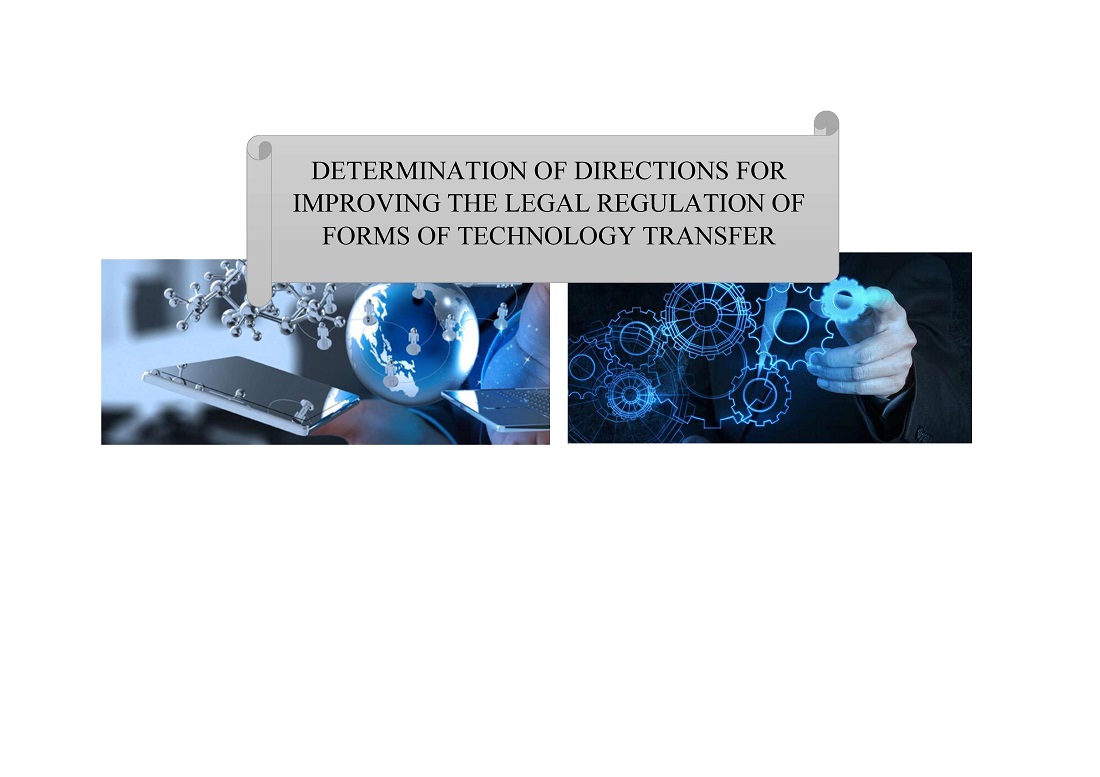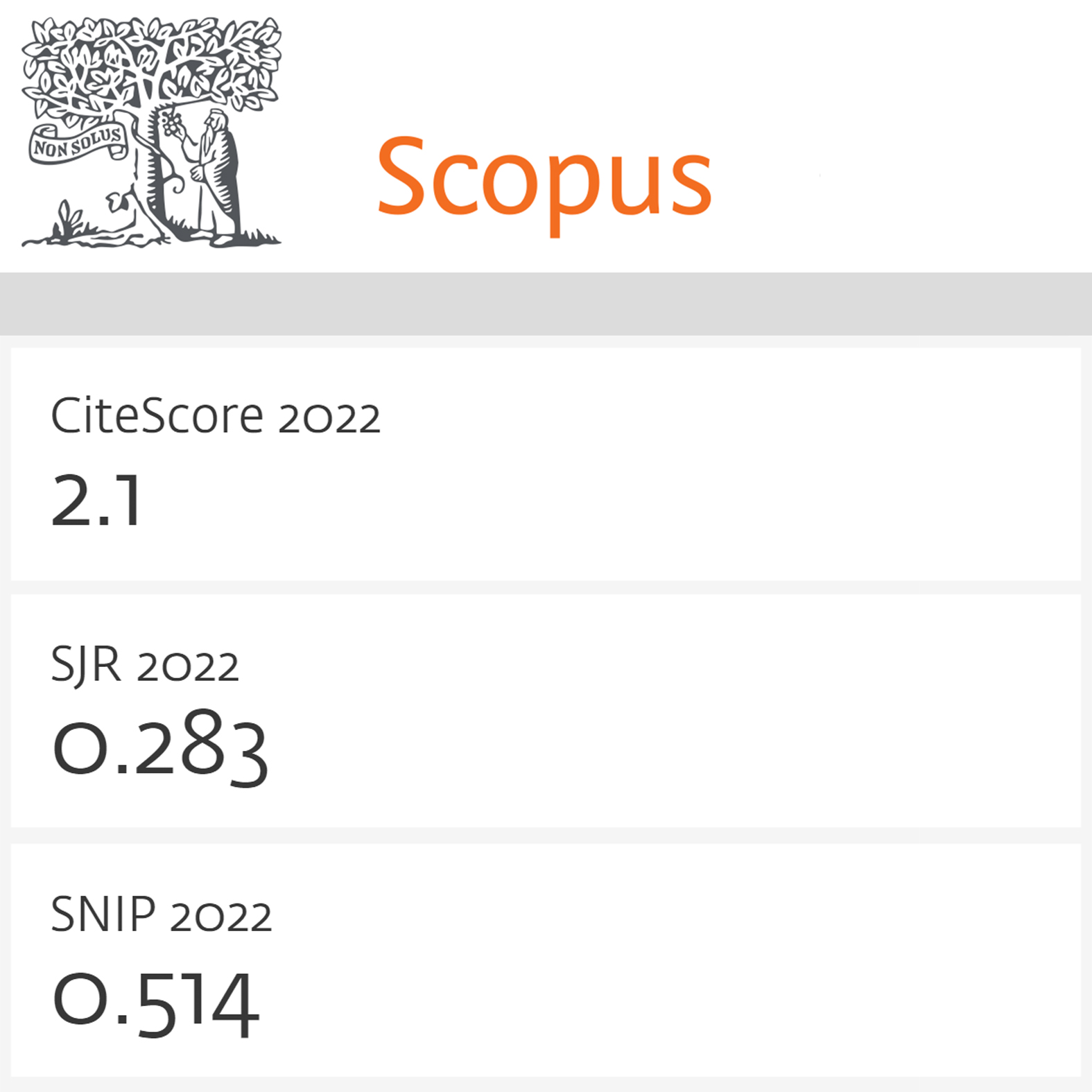Determining directions for improving the legal regulation of technology transfer forms
DOI:
https://doi.org/10.15587/1729-4061.2024.301879Keywords:
legal regulation of technologies, forms of technology transfer, unification of forms of transfer, innovationsAbstract
The object of this study is the existing regulatory approaches to determining the forms of technology transfer in the legal systems of economically developed countries of the world, international treaties, and agreements.
During the research and generalization of existing concepts, it was established that they are not unified and differ significantly from each other. It has been proven that this does not meet the needs of technology transfer participants and significantly destabilizes the technology transfer process. The expediency of improving the existing normative concept of determining the forms of technology transfer by fixing their single list has been substantiated. Recommendations on the list of the main forms of technology transfer have been formed based on a systematic analysis of legal acts that determine the peculiarities of the essence of technology. A classification of the main forms of technology transfer was proposed. Four main forms of technology transfer were identified as the transfer of rights to technology during its creation, within the framework of joint cooperation, within the framework of cooperation based on corporate and/or proprietary commercial principles. The expediency of dividing each form of transfer into separate subtypes was also substantiated. The need to make changes to the provisions of such international treaties and agreements as the World Trade Organization Agreements, the Recommendations of the World Organization for the Protection of Intellectual Property, the Oslo Guidelines, the UNCTAD Recommendations, and the framework program "Horizon Europe" has been proven.
The study is aimed at forming general theoretical foundations for improving the essence of regulatory techniques for identifying forms of technology transfer. The research results could be used in the formation of international normative acts, recommendations of international institutions, acts of national legislation, and serve as a basis for further scientific research into these issues
References
- Labetubun, M. A. H., Akyuwen, R. J., Pariela, M. V. G. (2018). Perlindungan Pengetahuan Tradisional Secara Sui Generis Untuk Menyongsong Masyarakat Ekonomi Asean. SASI, 24 (1), 1. https://doi.org/10.47268/sasi.v24i1.113
- Vasić, A. (2020). Legal treatment of grant-back clauses in licence agreements from the aspect of EU competition law. Zbornik Radova Pravnog Fakulteta Nis, 59 (89), 399–413. https://doi.org/10.5937/zrpfn0-29303
- Sepúlveda, C. I., Ocampos, J. A. (2021). International Technology Transfer to Promote Access and Innovation in Times of Global Crisis (January 22, 2021). les Nouvelles – Journal of the Licensing Executives Society, LVI (1). Available at: https://ssrn.com/abstract=3771482
- Labetubun, M. A. H., Akyuwen, R. J., Narwadan, T. N. A. (2022). Legal Implications of Foreign Investment Relating to Technology Transfer in the Patent Regime. SASI, 28 (1), 89. https://doi.org/10.47268/sasi.v28i1.829
- Thalib, A. (2014). Technology transfer in Indonesia: legal perspective. UUM Journal of Legal Studies, 5. https://doi.org/10.32890/uumjls.5.2014.4579
- Vierros, M. K., Harden-Davies, H. (2020). Capacity building and technology transfer for improving governance of marine areas both beyond and within national jurisdiction. Marine Policy, 122, 104158. https://doi.org/10.1016/j.marpol.2020.104158
- Samuel, K. L. H., Chai, C. G. (2018). Closing the ‘Intangible Technology Transfer’ Gap within the Existing Legal Frameworks: Time for an Additional Protocol(s)? Groningen Journal of International Law, 6 (1), 85–109. https://doi.org/10.21827/5b51d53eb39b2
- Ribeiro, M. C. P., Rocha Jr, W. F. da, Czelusniak, V. A. (2017). Mecanismos jurídicos e econômicos para a transferência de tecnologia: um estudo de caso. Revista Direito GV, 13 (1), 49–68. https://doi.org/10.1590/2317-6172201703
- Heidegger, M. (1954). Die Frage nach der Technik. Die Künste im technischen Zeitalter. München, 70–108. Available at: https://www.bard.edu/library/arendt/pdfs/Heidegger-Frage.pdf
- Dunning, J. H. (2002). Theories and Paradigms of International Business Activity. Elgaronline. https://doi.org/10.4337/9781843767053
- Casson, M. (2010). Entrepreneurship. Elgaronline. https://doi.org/10.4337/9781849805155
- Kojima, K. (1977). Transfer of Technology to Developing Countries -Japanese Type versus American Type-. Hitotsubashi Journal of Economics, 17 (2). https://doi.org/10.15057/7979
- TRIPS – Trade-Related Aspects of Intellectual Property Rights. WTO. Available at: https://www.wto.org/english/tratop_e/trips_e/trips_e.htm
- Exchanging Value - Negotiating Technology Licensing Agreements: A Training Manual. WIPO. Available at: https://www.wipo.int/edocs/pubdocs/en/licensing/906/wipo_pub_906.pdf
- Draft International Code of Conduct on the Transfer of Technology : report and notes / by experts on the outstanding issues ; compiled by the UNCTAD Secretariat (1988). Available at: https://digitallibrary.un.org/record/50095?ln=ru
- The Measurement of Scientific, Technological and Innovation Activities. https://doi.org/10.1787/24132764
- Davydiuk, O., Duiunova, T., Shovkoplias, H., Sivash, O., Hlushchenko, S., Lisohorova, K., Maryniv, I. (2023). Directions for improving the international legal regulation of the support program for the transfer of innovations and technologies "Horizon Europe". Eastern-European Journal of Enterprise Technologies, 2 (13 (122)), 85–91. https://doi.org/10.15587/1729-4061.2023.276747
- Regulation (EU) 2021/695 of the European Parliament and of the Council of 28 April 2021 establishing Horizon Europe – the Framework Programme for Research and Innovation, laying down its rules for participation and dissemination, and repealing Regulations (EU) No 1290/2013 and (EU) No 1291/2013 (Text with EEA relevance)Text with EEA relevance. Available at: https://eur-lex.europa.eu/eli/reg/2021/695
- Davydiuk, O., Shvydka, T., Ostapenko, I., Yurovska, V., Bytiak, O., Senyk, Y. (2023). Directions for improving the status of startups in the technology transfer system. Eastern-European Journal of Enterprise Technologies, 3 (13 (123)), 111–120. https://doi.org/10.15587/1729-4061.2023.282762

Downloads
Published
How to Cite
Issue
Section
License
Copyright (c) 2024 Oleksandr Davydiuk, Tetiana Shvydka, Bohdan Hnatkivskyi, Hanna Ivanova, Rehina Vaksman

This work is licensed under a Creative Commons Attribution 4.0 International License.
The consolidation and conditions for the transfer of copyright (identification of authorship) is carried out in the License Agreement. In particular, the authors reserve the right to the authorship of their manuscript and transfer the first publication of this work to the journal under the terms of the Creative Commons CC BY license. At the same time, they have the right to conclude on their own additional agreements concerning the non-exclusive distribution of the work in the form in which it was published by this journal, but provided that the link to the first publication of the article in this journal is preserved.
A license agreement is a document in which the author warrants that he/she owns all copyright for the work (manuscript, article, etc.).
The authors, signing the License Agreement with TECHNOLOGY CENTER PC, have all rights to the further use of their work, provided that they link to our edition in which the work was published.
According to the terms of the License Agreement, the Publisher TECHNOLOGY CENTER PC does not take away your copyrights and receives permission from the authors to use and dissemination of the publication through the world's scientific resources (own electronic resources, scientometric databases, repositories, libraries, etc.).
In the absence of a signed License Agreement or in the absence of this agreement of identifiers allowing to identify the identity of the author, the editors have no right to work with the manuscript.
It is important to remember that there is another type of agreement between authors and publishers – when copyright is transferred from the authors to the publisher. In this case, the authors lose ownership of their work and may not use it in any way.









